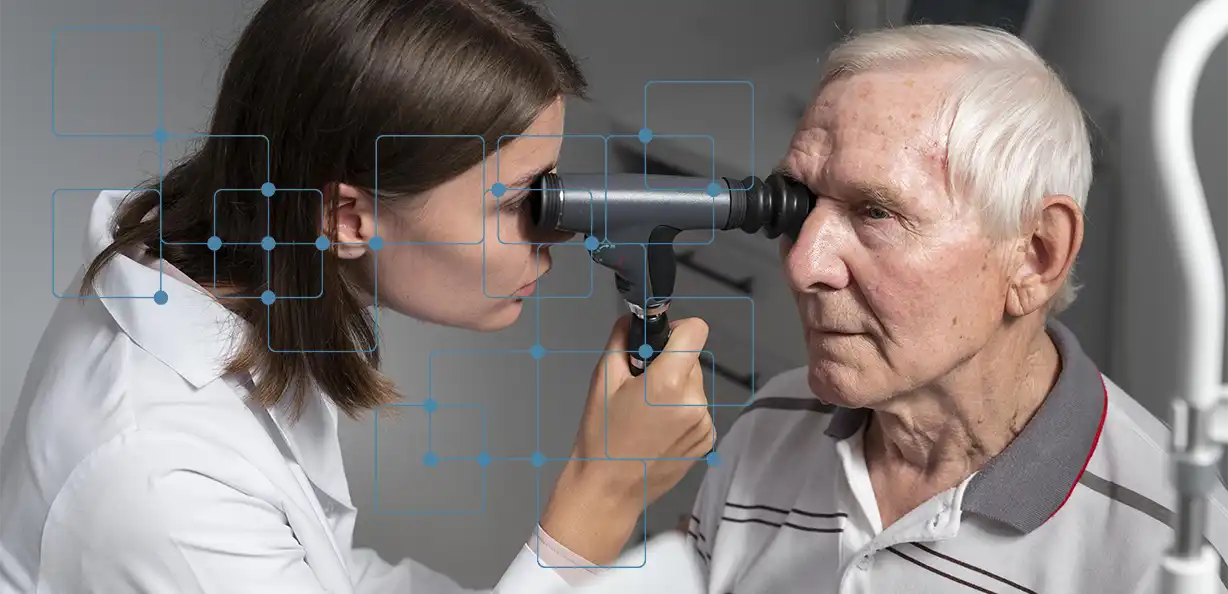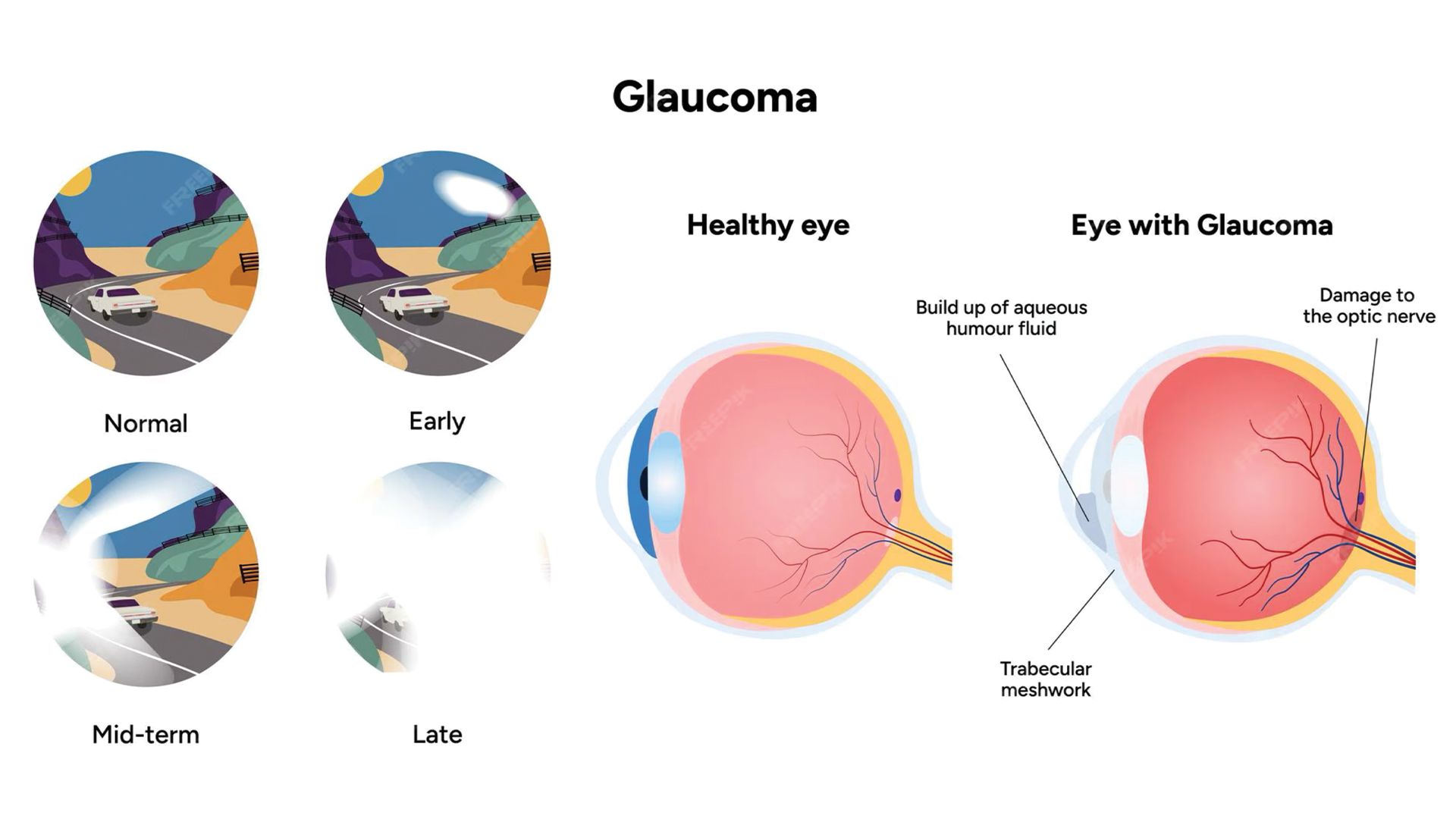
Glaucoma is one of the leading causes of irreversible blindness worldwide, yet many people remain unaware they have the condition until it is in an advanced stage. At Fakeeh University Hospital and Medicentres in Dubai, our ophthalmology specialists emphasize the importance of early detection and regular eye check-ups to prevent vision loss.
Glaucoma is an eye disease that leads to progressive and permanent vision loss due to damage to the optic nerve. This damage is often linked to increased intraocular pressure (IOP), which builds up when excess fluid in the eye does not drain properly. If untreated, glaucoma can lead to total blindness within a few years.
Glaucoma often affects older adults but can occur at any age.

You may be at higher risk of developing glaucoma if you have:
Tip: If you fall under any of these risk groups, visit an eye specialist in Dubai regularly for preventive screening.
Glaucoma is called the “silent thief of sight” because early vision loss often goes unnoticed. Symptoms vary depending on the type:
At Fakeeh University Hospital in Dubai, ophthalmologists perform a range of tests, including:
Early diagnosis ensures effective management before irreversible damage occurs.
Although glaucoma damage cannot be reversed, timely treatment can preserve vision and slow progression.
Treatment plans are tailored by our specialists depending on your type and stage of glaucoma.
Fakeeh University Hospital's expert ophthalmologists provide:
📞 Call +971 4 414 4444 or visit www.fuh.care to book your glaucoma consultation today.

No, glaucoma cannot be cured permanently because the damage it causes to the optic nerve is irreversible. However, with early diagnosis and proper glaucoma treatment in Dubai, the progression of the disease can be slowed or controlled. Treatments such as prescription eye drops, oral medications, laser procedures, or surgery help lower intraocular pressure and protect the optic nerve from further damage. Regular follow-up visits with an ophthalmologist in Dubai are essential for long-term management.

Certain groups of people are more likely to develop glaucoma. Risk factors include being over the age of 60, having a family history of glaucoma, suffering from chronic eye pressure or thin corneas, or having severe nearsightedness or farsightedness. Medical conditions like diabetes, hypertension, and heart disease can also increase the risk. If you fall under any of these categories, schedule a glaucoma screening in Dubai to detect the disease early.

The frequency of eye exams depends on your age and risk factors. In general:
If you are high-risk (family history, diabetes, or previous eye injury), you should consult an eye specialist in Dubai more frequently. Regular check-ups are crucial because glaucoma often develops without obvious symptoms in the early stages.

No, most glaucoma treatments are not painful. Eye drops and oral medications are painless and easy to use. Laser treatments, such as laser trabeculoplasty or laser peripheral iridotomy, are minimally invasive and cause only mild discomfort, if any. Surgical options like trabeculectomy or minimally invasive glaucoma surgery (MIGS) may require recovery time, but they are performed under anesthesia to ensure patient comfort. Fakeeh University Hospital in Dubai's ophthalmologists ensure treatments are safe, comfortable, and tailored to each patient’s needs.

Yes, untreated glaucoma can eventually lead to total and permanent blindness. The disease damages the optic nerve over time, leading to a gradual loss of vision, usually starting from the peripheral vision. Because symptoms often appear late, many people don’t realize they have glaucoma until significant damage has occurred. With early detection and proper glaucoma management in Dubai, patients can protect their vision and maintain quality of life.

The early signs vary depending on the type of glaucoma. Open-angle glaucoma, the most common type, usually progresses silently with no noticeable symptoms until advanced stages, where peripheral vision loss occurs. Angle-closure glaucoma, however, presents sudden symptoms such as severe eye pain, headache, nausea, blurred vision, and halos around lights. If you experience these signs, seek urgent care from an eye hospital in Dubai immediately.